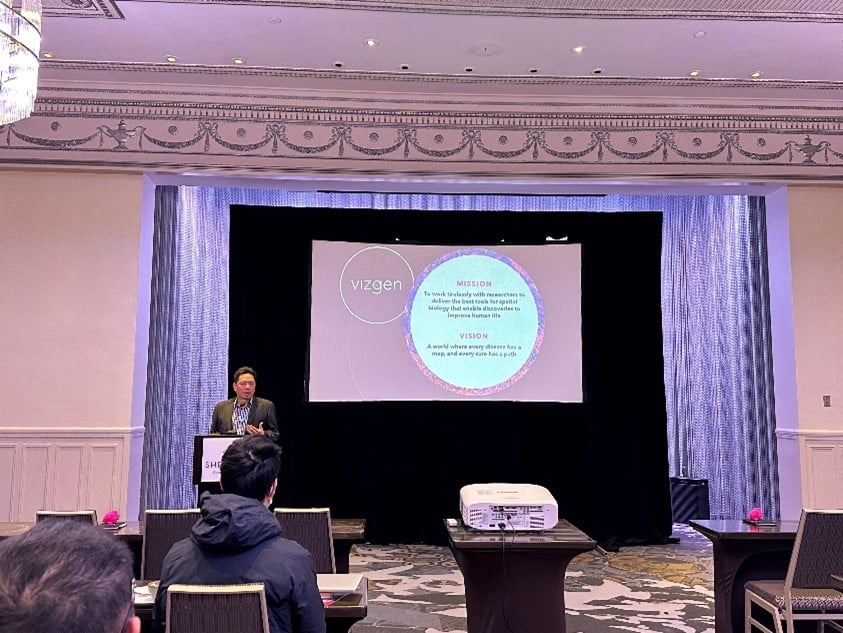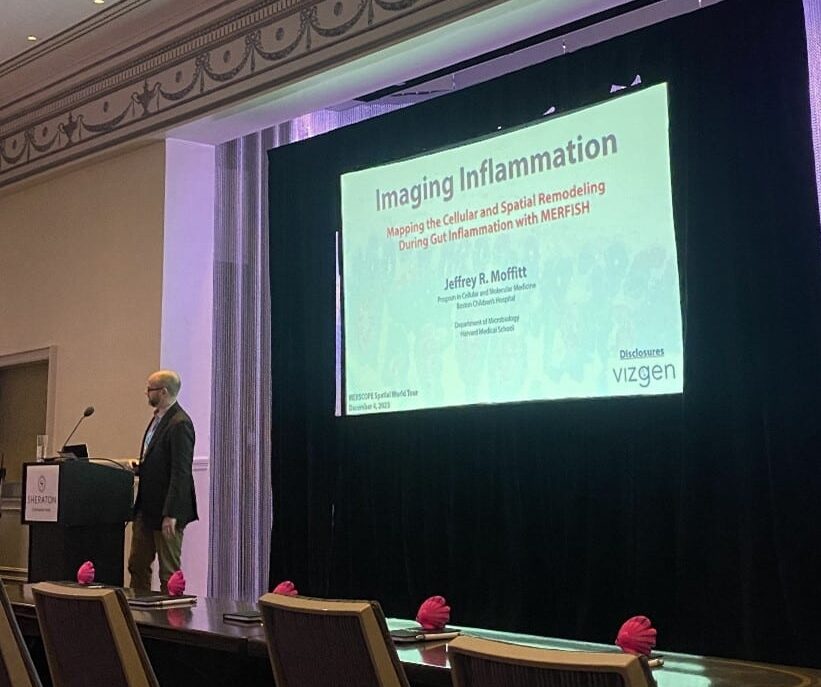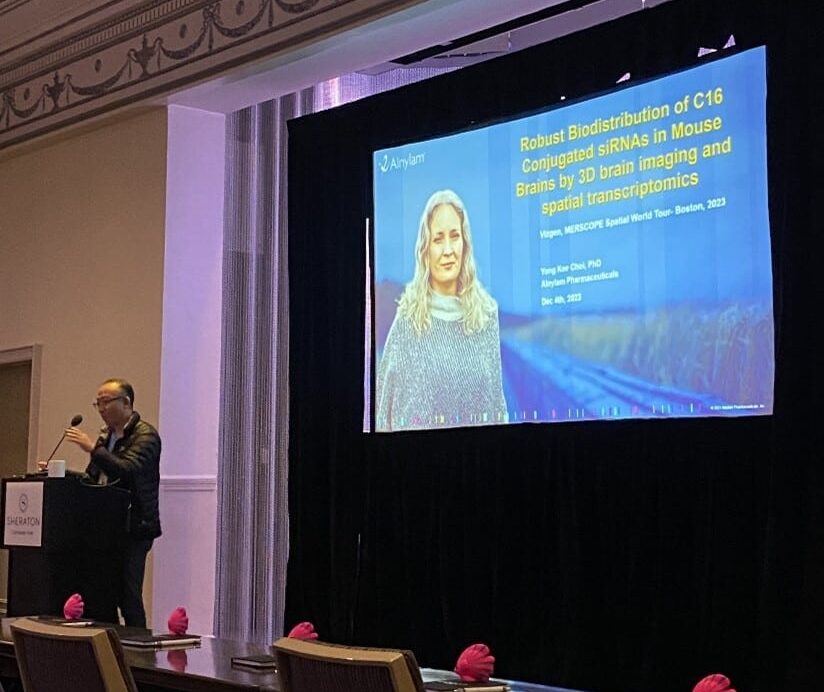Earlier this week, we kicked off Vizgen’s MERSCOPE® Spatial World Tour! We welcomed researchers, industry experts, and peers to Cambridge, MA for a day of exciting presentations and learnings on the vast applications of MERFISH Technology for spatial genomics.
Terry Lo, CEO of Vizgen, began the seminar with an inspirational address welcoming everyone to the event. Next, the audience had the opportunity to hear from Harvard University’s Dr. Xiaowei Zhuang, Ph.D., the inventor of MERFISH technology. Zhuang’s presentation introduced MERFISH and highlighted its applications in understanding the molecular, spatial, and functional organizations of distinct cell types within the brain, using both mouse and human models as examples.

Terry Lo, CEO of Vizgen, delivering the welcome address to attendees for the first MERSCOPE Spatial World Tour seminar.
New Research Applications for MERFISH
Jonathan Chen from Mass General Hospital then gave a presentation diving into the spatial organization of immunity hubs in human lung cancer. He shared how his lab used MERFISH to help discover that a subtype of immunity hub is strongly associated with favorable PD-1-blockade immunotherapy outcomes.
After a coffee break, Jiang He, Vizgen’s Scientific Co-founder and Senior Director of Scientific Affairs, provided background on the MERSCOPE Platform, the all-in-one flexible solution for performing MERFISH spatial transcriptomics experiments.
Chanyoung (Chan) Park from Whitehead Institute then shared how his team uses MERSCOPE to study the regeneration of the planarian Schmidtea mediterranea. Park’s recent research suggests that fate pattern formation in planarian regeneration is primarily influenced by the migratory assortment of progenitors originating from spatially distributed, fate-specialized stem cells.
Next, Dr. Jeffrey Moffitt, Ph.D., from Harvard Medical School shared his lab’s recent findings on using MERFISH to study a mouse model of inflammatory bowel diseases (IBD). His research revealed similar features between the mouse model and human ulcerative colitis, suggesting the potential utility of MERFISH in understanding and guiding future studies of inflammatory remodeling across various tissues and diseases.

Jeffrey Moffitt, Ph.D., Assistant Professor at Harvard Medical School, presents study mapping the cellular and spatial remodeling of the gut during inflammation
Yong Kee Choi from Alnylam Pharmaceuticals wrapped up the day with his presentation on how his team used light sheet microscopy and MERFISH spatial transcriptomics to detect the robust biodistribution and activity of C16 conjugated small interfering RNA (siRNA) in mouse brains, demonstrating the use of C16-siRNAs as potential therapeutics against toxic genes in a wide range of neurological disorders.

Yong Kee Choi, Ph.D., Senior Scientist at Alnylam, presents research on the robust biodistribution of C16 conjugated siRNAs in mouse brains utilizing 3D brain imaging and spatial transcriptomics.
If you didn’t get the chance to join us for the first MERSCOPE Spatial World Tour stop, we look forward to welcoming you at our next event – stay tuned for details!